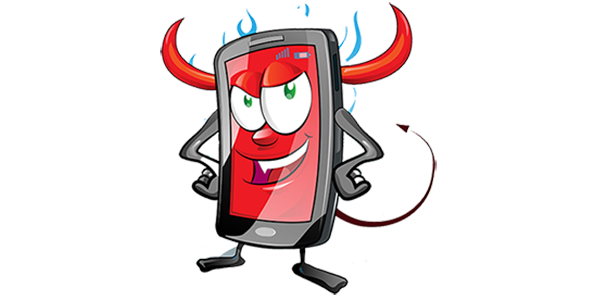I can’t stop looking at my phone. Every few minutes it calls my name. Gwen. If I try to ignore it, it screams my name: GWEN!!! I find myself consumed by my phone whether it’s during virtual classes or late into the night past my bedtime. I tell myself a few minutes of scrolling through social media won’t cause any harm but before I know it I’ve watched more videos than I should have and hours have already passed. Being on my phone constantly eats its way into my day. I ignore my responsibilities and substitute them for hours of social media scrolling.
The app I spent over four hours on a day: TikTok.

If I had known I would develop an addiction, I would have never made an account. TikTok has taken the lead in being the most used app among teens in 2020 with over 689 million active users. The growth rate has yet to slow down and the app continues to be a favorite, especially with young people. But what makes this app different from the rest? Is it the fun dance trends that get everybody moving or the wide-ranged variety of content? Maybe it’s the crazy storytimes. Or maybe the ability to save videos directly to your camera roll for easy sharing.
These features definitely contribute to the TikTok craze. But the main reason it sucks in so many teens is because it is mindless entertainment. It requires little to no attention span. That’s why I find my eyes glued to the tiny screen for hours. Other apps like Facebook and Instagram feature hour-long videos and wordy paragraphs that go with them. But TikTok videos are short. Captions can’t exceed 100 characters. So it’s easier for viewers to get the most out of TikTok’s content in a short amount of time. These features are no mistake. Creators and marketers capitalize on audiences that want short and easy content. Like me.TikTok captured my attention and took over my life. Long studying sessions have become polluted with social media breaks and Zoom sessions are constantly interrupted by my need to reach for my phone. My attention span has shortened even more. I find it hard to focus for long periods. The more time I spend on a single activity, the more my interest and attention decreases. Homework assignments take way longer than necessary. Hobbies I once enjoyed have become exhausting. But as my senior year draws to a close and I approach the start of college, my ability to focus becomes more important than ever. If I don’t fight to maintain a proper focus my inability to complete any tasks will only get worse. Holding myself accountable for allowing this distraction to take over my life was difficult because I kept making excuses. Small increments of wasted time eventually turned into hours until I had no other choice but to put everything off for another day. With piled-up homework and responsibilities, I reached a breaking point. My grades plummeted. To my friends, family and teachers I became unreliable.
I tried Apple’s App Limits feature, which lets users set specific time limits for specific apps. Unfortunately, I continuously bypassed the daily time limits, defeating the feature’s purpose. My last resort was to manually disable app notifications individually to prevent myself from checking my phone every time I heard or saw a new notification. A different Apple feature that works similarly to combat excessive device usage is the personalized weekly screen time report which recaps the number of notifications received, hours spent on the device and number of times the device is picked up. My report showed that I averaged 11 hours on my phone every day when instead I should have been completing assignments, doing chores or spending time doing hobbies. The graphs, charts and numbers showing the time I wasted every day helped me reverse my bad habits. Another way I’ve regained control is by limiting the content I post. Posting less on social media meant less engagement from my followers, which decreased my urge to reply to them. Extending my attention span became easier after cutting the distractions out. Filling my time with healthier activities that require patience and attention to detail has improved my focus tremendously. Jigsaw puzzles are my newest hobby. Setting a time limit helps me maintain some control over my attention span. Word search and sudoku puzzle books weren’t an ideal everyday activity for me at first but the problem-solving mindset and techniques they required have also helped. I’ve also had to unlearn multitasking, another unhealthy habit that wastes time. Devoting your attention to one task and performing your best is a more effective strategy than devoting a partial effort towards multiple tasks. Although I still experience moments of being distracted and bored, my ability to focus has improved nonetheless. My fight to change the way I spend my time has really been an eye-opener for me. Technology has turned content consumption into a monster that can consume your life. I had to learn the hard way.



